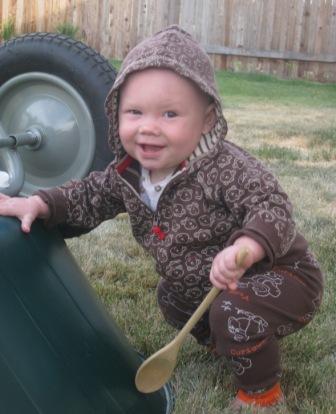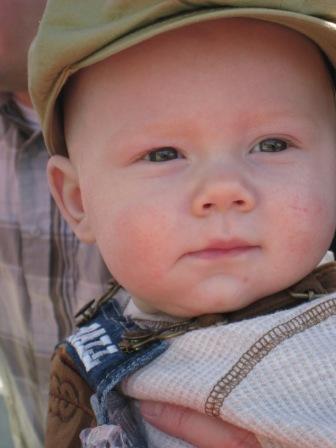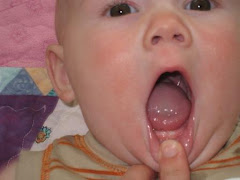After having a 16 year-old move in with us six months ago we have realized how much social media is playing a part in our children’s lives today. Speaking your mind is nothing new for teens, but posting your every thought and movement for the world to see, just makes the self-identity search so much more intense for them.
So many everyday things are affecting teens, it all seems so unreal. Personal face-to-face connections shape how people mature. Experiencing life on the sidewalk, in a store, at work, at the mall all have a significant impact on how a person develops. If you share your day with people without having a face-to-face conversation, how will you learn how to behave or view the world in different ways? The fact that having more "friends" is more important than knowing who they are is insanity. Having someone "like" your status or not as your sole motivation behind each day is not only sad, but creates a real challenge on self-identity for the developing teen. Many more examples come into play, too many to list here.
As a developing teen searches for his or her identity, on how they fit into this world, social media encourages reaching out to strangers, people whom you would not normally be exposed to or even converse with in person. It can have the benefit of coming out of a shell and speaking your mind without having the face-to-face response to contend with. It may allow you to meet people you would not ever have met if it weren't for the internet. There are pros to this yes, but the cons outweigh the pros by far. The exposure teens have to the world has reached mass proportions and now their every move, thought, picture or opinion is posted for the world to see.
Take Megan's Law for example and the associated website of convicted sex offenders. Search the local database and see who surrounds your neighborhood. This is a great tool for checking out communities where you live, work, or where your kids go to school. This is one plus for the internet. Yet this same tool can give you a very graphic realization that really bad, sick people live in this world, and yes, they may be your neighbor. So with this in mind, exposing your teen to this website might give them a message that sneaking out at 1am and walking the street on your own is not a good idea because they may walk by a convicted rapist’s house. But is this enough to get them to stop talking to people online that they have never met? I don't think so.
Adolescence is a time to explore, observe and experiment with thoughts, behaviors and opinions. Individual or group reactions to these rights of passage are how teens grow, how they form their own thoughts and opinions and how they hopefully learn to be better people. Adding social media to this time of life exposes teens to the immediate scrutiny of others, such as social or cyber bullying, judgment, conflict and backlash.
A simple example is a teen that may not even be online, but has a photo posted of herself with a group of people. They are `tagged' and a discussion arises about the photo. Something as simple as a photo of a few people having dinner can produce an unwanted chain of events. Anyone who is `tagged' is notified as well as all the 100's of friends they may have. They are all able to comment on it. A rumor starts that a few people in the photo are dating, yet a friend of someone in the picture is jealous to see one person being told they are dating the other in the photo. So there is the potential for the third un-pictured party to continue the banter back and forth, antagonizing another photographed party. The non-photographed third party explains that they hooked up with said party creating a jealous situation. This entire conversation is posted below the photo for the world to see. All of this happens in a matter of seconds, on a school day and has the potential to change a person’s reputation forever, without them even having an active part in it. Hundreds of people have been witness to this above scenario; all having access at their fingertips to participate or view it from their smart phones.
The speed of this chain event would not be possible without social networking. Hundreds of young minds, attitudes, opinions and behaviors are involved. Many teens have a social link missing when they don’t have the option of filtering one’s views. This usually comes with maturing. You learn when to speak, how to speak and how your words may be viewed or affecting others. Some adults still lack this self-filtering behavior, but for the most part, young people have yet to develop it. They don't have the experience to know how to say something without adding to a problem or creating a negative effect. Over time and aging one hopes someone matures and learns from experience in order to develop mature reactions and thought processes. Teens don't have the life experience and also lack the exposure of the years of trial and error. Before the internet and social networking teens would have limited access to others. If they could drive, opportunities for social interaction expanded, but for the most part, teens have limited amounts of exposure to a variety of social situations. Employment, school, sports and perhaps parties expose teens to social interactions, along with hundreds of other different situations that occur with these different opportunities. Compound these normal influences with the internet & social media to a teen’s naive life experiences and you multiply the social interaction effect with by the thousands.
In our situation, we have tried taking away the cell phone, cutting off texting, removing everyone from FB that she doesn't know in person and anyone over 18 period (except family). What is working right now is limiting her time on the internet to one hour a day after chores and homework are done. We also told her she had to join some type of social activity or get a job at least three days a week to be too busy to get in trouble. She is in a play through her church and it is helping keep her busy with just enough time to get homework done.
The fact is kids aren't forced to grow up in reality but in this social media bubble which allows them to be who they are without direct face-to-face learning experience. I had to ride the bus anywhere I wanted to go. I had to figure out how to make money to buy anything, let alone have extras like an IPhone, IPad or IPods. Mainstream marketing really has hit a key market and it is so drilled into our society it is becoming absurd.
I was at the park the other day and saw two little girls roller blading (or attempting to roller blade) right after Christmas. The older girl took off her skates and went to play at the park (she was about 8 years old). The younger girl, maybe 6, was on her skates holding her parents hands and screaming at them not to let go. Then she told them to set her down, take her skates off, but not to get her socks wet and then to put on her shoes. Then she continued to inform them, "I didn't want skates, I didn't ask for skates, I only wanted an IPod. Why couldn't you just get me an IPod?" Then she screamed at them, pitching a fit. I think her parents response was, “Go play.” I am glad they didn't get her the IPod and I hope they felt the same way.
I have always believed that I don't want my kids playing video games. I have two young children, 3 and 18 months old. Well, I got a Kindle Fire for Xmas and I use it for work (much cheaper option than an IPad if I only wanted Internet and some app options). Well we found an app that had a cute Disney app for a crocodile game for the kids with the touch screen. My 18 month old loves dragging things around and she is enamored by it. She can use it much sooner than a child would be able to learn how to play a video game. So a downside to our modern technologies is that younger kids can use them, which shouldn't be. I have used it a few times at the doctor’s office to keep the kids occupied and daddy has used his phone to play YouTube videos for the kids to occupy them too. So they are modern conveniences. But at what cost? The long term effects scare me. I limit this for sure one time a week max and we have removed TV from the kids all together. It helps their demeanor and encourages them to use imagination and play outside or in and come up with their own games. We have seen a huge step of social development & play in both kids over the last few weeks limiting their modern toys.
So many things to think about it this makes my head spin. I can't help but think how much trouble I would have been in when I was young if I had had access to these same opportunities and technical toys. Then again I don't like to do anything illegal or get in trouble; it makes me too nervous so I may have been tempted to meet people, but never in person. But kids without this sense of caution or inhibition can get into a lot of trouble if not get hurt or killed.
What are we to do without cutting off all of these temptations all together? Any comments or suggestions on things that work?
Subscribe to:
Comments (Atom)
Doula and Pregnancy Related Links
Blog Archive
- May 2012 (1)
- February 2012 (1)
- December 2011 (2)
- May 2011 (3)
- December 2010 (1)
- October 2010 (1)
- August 2010 (1)
- April 2010 (1)
- March 2010 (3)
- February 2010 (1)
- November 2009 (3)
- October 2009 (3)
- September 2009 (4)
- August 2009 (1)
- July 2009 (1)
- June 2009 (4)
- May 2009 (1)
- April 2009 (8)










